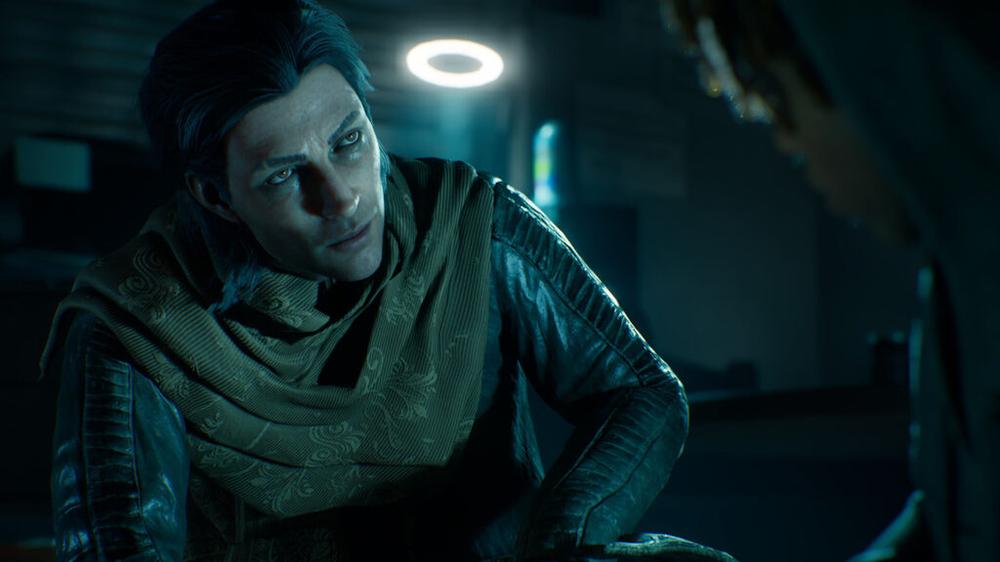In Alien: Earth Episode 3, Morrow poses an intriguing question to two Lost Boys, and it’s a riddle that can’t be whittled down to a simple answer: “When is a machine not a machine?”
The Alien franchise ultimately revolves around a monstrous extraterrestrial species (specifically, a Xenomorph). However, whether it’s Ridley Scott, James Cameron, or Noah Hawley, themes are shared across every entry – including our (in)humanity and how it evolves alongside technology.
You could argue this is Alien: Earth’s raison d’être, given it opens by outlining the world’s “race for immortality” between cyborgs, synths, and hybrids, and it follows Wendy (Sydney Chandler), a synthetic, enhanced body with a child’s mind under the control of Prodigy Corporation.
She is one of several ‘synthetics’ in the series, including Kirsh (Timothy Olyphant) and the other hybrids. However, Morrow (Babou Ceesay) is the show’s sole cyborg (so far), which makes this riddle especially interesting.
Alien: Earth doesn’t have an easy answer for ‘When is a machine not a machine?’
In Episode 3, Morrow asks the hybrids if he’d be able to follow orders to hurt someone, and their response troubles him. They ask if they’d be harming bad people and say they’d protect their friends or parents if they had to – in other words, they have their own moral boundaries.
“You don’t know? Is that possible?” Morrow says, before he corners Slightly (Adarsh Gourav) and asks, “When is a machine not a machine?”
Slightly doesn’t provide an answer, and nor does Morrow, leaving it in the air for the audience.
You could argue that a machine isn’t a machine when it has the autonomy to operate outside its defined purpose. Machines are built for specific reasons, and they can’t exist independently beyond whatever task it was designed to do. They operate at the whims of their makers and owners – if a machine rejects a request for any reason that isn’t purely technical, is it truly a machine?
But here’s where it gets interesting: Morrow isn’t a machine. A cyborg isn’t a robot, it’s a cybernetically enhanced human, and as he says, he’s “the worst parts of a man.”
What are those “worst parts”? He could be referencing the remnants of his human body that Weyland-Yutani hasn’t altered, but it feels more likely that he’s talking about his capacity for emotion.
He executed Mother’s demands aboard the USS Maginot without mercy, declaring the crew dead and saving himself before the crash. If a synthetic did that, it would be as menial as taking out the trash; at the end of the day, it’s just another task (on paper, at least). Morrow has proven that he’s a loyal, unblinking agent of whatever Weyland-Yutani wants, but that doesn’t mean he isn’t tortured by his decisions.
Unlike the hybrids, who are machines with inbuilt humanity, Morrow is a human who longs for the emotional freedom of being a machine.
That’s before you consider another possibility: even though a synth should be a pure machine, history has proven that’s not always the case, whether it’s David in Alien: Romulus or Lance Henriksen’s Bishop, androids whose behavior is clearly motivated by something other than programming.
The best example isn’t even in the Alien franchise: it’s Rutger Hauer’s Roy Batty in Blade Runner, a replicant whose self-perception illustrates just how blurred the line between machine and man could become.
As he tells Deckard, “Quite an experience to live in fear, isn’t it? That’s what it is to be a slave.”

 Vampire: The Masquerade - Bloodlines 2 ha finalmente una data di uscita
Vampire: The Masquerade - Bloodlines 2 ha finalmente una data di uscita